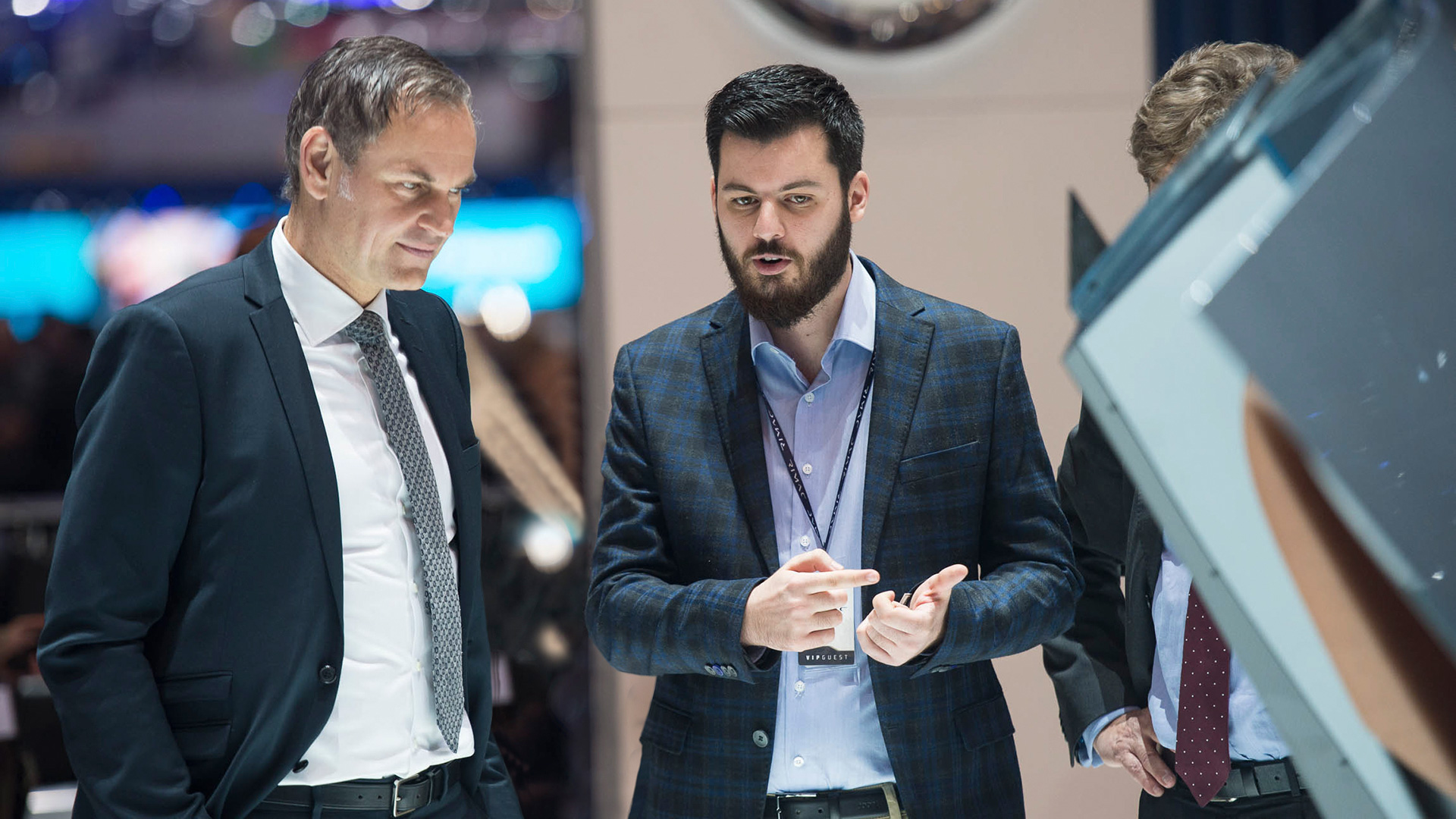

Car companies have made a parlor game of cozying up to high-tech firms, particularly those with autonomy—or at the very least, “mobility”—in their wheelhouse. But this most recent announcement caught the motoring world by surprise: Porsche has purchased a stake in Croatian technology and electric sports car company Rimac. That’s right—Porsche is now a partial owner of the company whose outrageously-cool Concept One supercar Richard Hammond rolled into a fiery ball of lithium-fueled horror last year while filming an episode of The Grand Tour.
So what gives? After all, a sports car company digging into another sports car company, rather than plugging an obvious gap in skill sets such as autonomy software or battery tech, is, to say the least, curious—especially because in this case the buyer, Porsche, would already seem to have its EV house in order, vis-à-vis the forthcoming Mission E
Taycan. On the other hand, Rimac has already itself become a key supplier to tech-minded OEMs, including producing the hybrid battery systems for Aston Martin’s Valkyrie hypercar, battery systems for Koenigsegg and Jaguar, and electric powertrains for race cars, including the Tajima Rimac E-Runner Concept_One that Nobuhiro Tajima raced at the 2015 Pikes Peak International Hill Climb.
The release Porsche put out is light on specifics about what would change hands in the investment, which constitutes a 10 percent minority shareholder stake, except to say its “seeking a development partnership with the young company” as part of its electrification efforts. Rimac was founded in 2009 by young engineer Mate Rimac—and the Hammond mishap aside, the company’s growth has been enviable. It now has more than 400 employees; back in March, it revealed the new C Two hypercar at the Geneva Motor Show, an EV hypercar that produces 2,000 horsepower and can hit more than 250 mph, with a range of 400 miles. (Presumably with a lighter touch on the pedal than a top-speed run.) That car can also charge to 80 percent in 30 minutes through a 250-kW fast-charging system. Clearly, it seems likely Rimac’s focus on battery management technology, electric powertrains, and digital interfaces drew Porsche’s attention.
“By developing the purely electric two-seaters super sports cars, like the ‘Concept One’ or ‘C Two,’ as well as core vehicle systems, Rimac has impressively demonstrated its credentials in the field of electromobility,” said Porsche board member Lutz Meschke in a statement. “We feel that Rimac’s ideas and approaches are extremely promising, which is why we hope to enter into close collaboration with the company in the form of a development partnership.”
For its part, Rimac said in the same release that the partnership would enable it to solidify its place as a supplier for electrification, connectivity, and driver-assistance systems, which might give some clues as to what corporate energy would be flowing from Porsche in the other direction.
Ultimately, Rimac is playing its growth intelligently, by diversifying and making its skill sets available to carmakers rather than betting its future entirely on the success of a $1 million-plus hypercar. It’s even going after the extreme entry-level market, via the electric bicycles it sells through its Greyp Bikes subsidiary. Could that be part of Porsche’s real play? Porsche e-bikes? One can hope. More likely: A smoother path to full-line electrification…and perhaps an electric hypercar of its own.